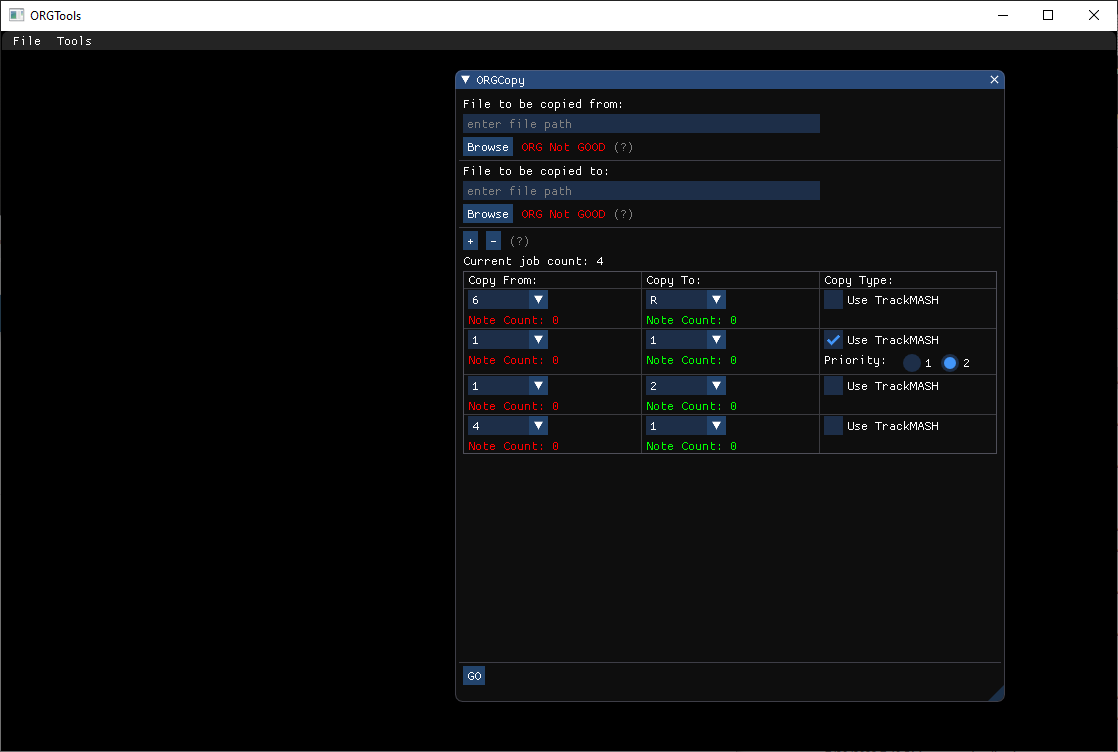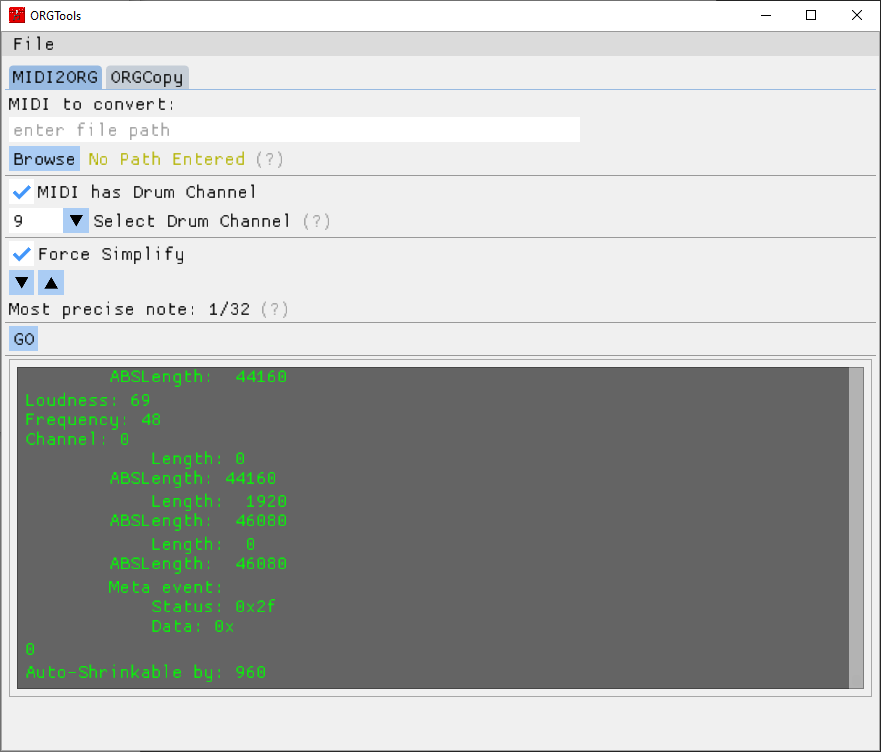Mar 16, 2022 at 9:53 PM
Junior Member

"Wow! The more I drink of this magical beverage, the more games I can play! Wheee!"
Join Date: Jun 18, 2021
Location: Earth, Mars, or somewhere in between...
Posts: 27
Pronouns: Pronouns: Pronouns: Pronouns: Pronouns: Pronouns:
I've recently developed a set of tools to effectively convert MIDI files into ORG files.
Some time ago, I stumbled upon this post made back in 2012 about a tool that was designed to make this conversion. Unfortunately, that tool was quite cumbersome to use, and in the end, did not produce a quality result (you can read that thread and see that my experience was not unique).
Over time, as I became more competent with computers, I decided to try making a converter myself that would actually be useable. This is the result :
MIDI2ORG
ORGCopy
(Prebuilt binaries can be found in the “releases” tab on GitHub)
Both of these programs have an important role to play when converting MIDIs into ORG files.
The first program actually does the conversions, but in order to conserve as much MIDI data as possible, it splits each individual track and channel into its own org file. The primary reason for this is because MIDI channels can have multiple notes playing at one time, so the possibility of missing something important is very large unless this is done.
The second program is a utility to copy tracks between ORG files, so you can pick the most important channel data and copy it all to one final song. You can also combine several tracks into one if there isn't enough space in the ORG to hold each track individually.
I explain more on how this all works in the github repositories.
Attached is a showcase of what this tool can do. I took the Power Rangers' theme (actually the same file mentioned in the original MIDI converter thread) and converted it.
I did not alter anything beyond using the ORGCopy utility to migrate all the tracks into one file, setting loop points, and changing instruments (which are by default, all instrument 0).
Tempo, time signature, and volume are all gathered from the MIDI with no user intervention.
Update:
I've begun development on a GUI application that combines both of these tools into one.
The program is incomplete at the moment, but you can see the in-progress release here.
Currently, only ORGCopy is working right now, but already there are several quality-of-life improvements made over the terminal version, like the ability to perform multiple copy operations at one time.
Update 2:
The first completed version of the application is finished, with both ORGCopy and MIDI2ORG fully implemented and many of the bugs that appeared in the earlier versions removed.
For now, I decided to keep IMGui as the main library for simplicity's sake, but it has been styled to behave more like a traditional windowed application.
I've also added a snazzy app icon. -No, it's not important to the actual function of the application, but it was fun to make.
Check out the release here.
Some time ago, I stumbled upon this post made back in 2012 about a tool that was designed to make this conversion. Unfortunately, that tool was quite cumbersome to use, and in the end, did not produce a quality result (you can read that thread and see that my experience was not unique).
Over time, as I became more competent with computers, I decided to try making a converter myself that would actually be useable. This is the result :
MIDI2ORG
ORGCopy
(Prebuilt binaries can be found in the “releases” tab on GitHub)
Both of these programs have an important role to play when converting MIDIs into ORG files.
The first program actually does the conversions, but in order to conserve as much MIDI data as possible, it splits each individual track and channel into its own org file. The primary reason for this is because MIDI channels can have multiple notes playing at one time, so the possibility of missing something important is very large unless this is done.
The second program is a utility to copy tracks between ORG files, so you can pick the most important channel data and copy it all to one final song. You can also combine several tracks into one if there isn't enough space in the ORG to hold each track individually.
I explain more on how this all works in the github repositories.
Attached is a showcase of what this tool can do. I took the Power Rangers' theme (actually the same file mentioned in the original MIDI converter thread) and converted it.
I did not alter anything beyond using the ORGCopy utility to migrate all the tracks into one file, setting loop points, and changing instruments (which are by default, all instrument 0).
Tempo, time signature, and volume are all gathered from the MIDI with no user intervention.
Update:
I've begun development on a GUI application that combines both of these tools into one.
The program is incomplete at the moment, but you can see the in-progress release here.
Currently, only ORGCopy is working right now, but already there are several quality-of-life improvements made over the terminal version, like the ability to perform multiple copy operations at one time.
Update 2:
The first completed version of the application is finished, with both ORGCopy and MIDI2ORG fully implemented and many of the bugs that appeared in the earlier versions removed.
For now, I decided to keep IMGui as the main library for simplicity's sake, but it has been styled to behave more like a traditional windowed application.
I've also added a snazzy app icon. -No, it's not important to the actual function of the application, but it was fun to make.
Check out the release here.
Attachments
Last edited:








